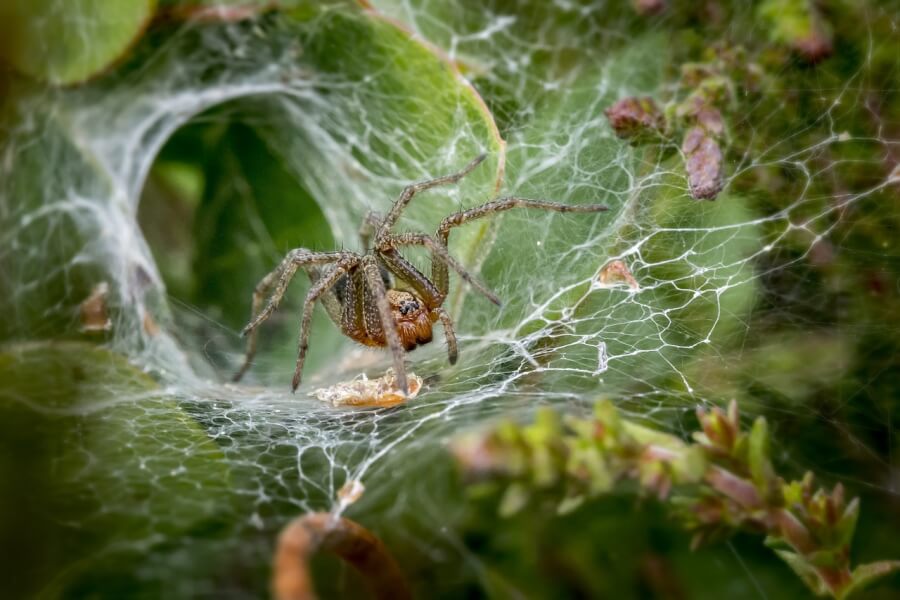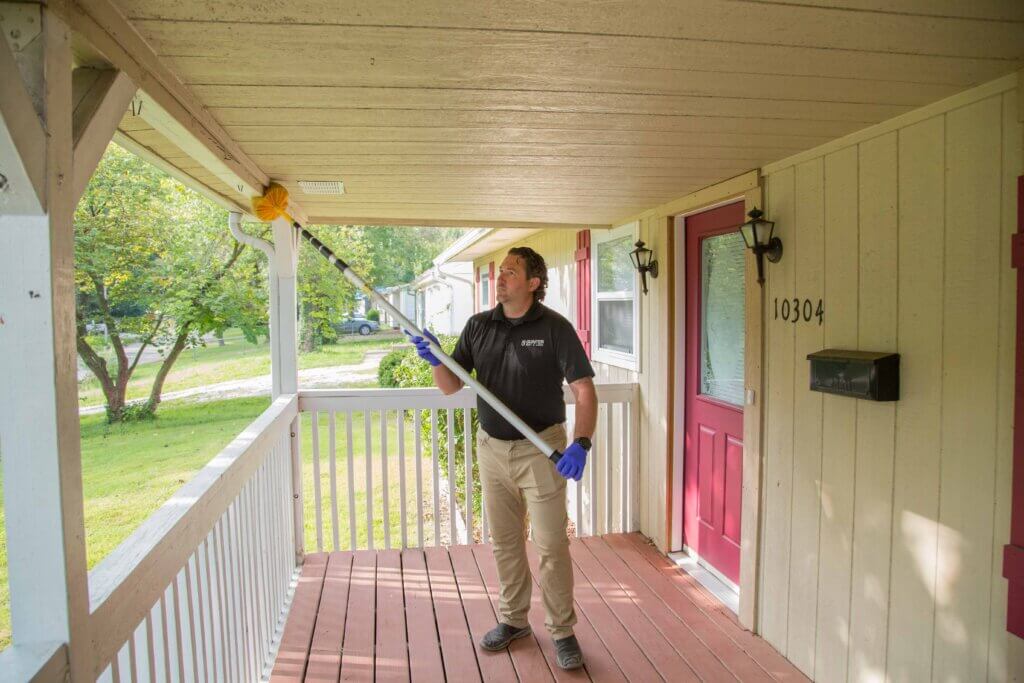
It’s Fall in the Midwest, and as much as many of us look forward to the beautiful colorful fall leaves and cooler weather, we’re also hit with a gamut of pests trying to invade our homes. Just in time for celebrating another Halloween in Kansas City, we asked our on-staff Kansas City Entomologist, John, about spiders.

The general consensus is that we don’t love them in our homes. Yes, they eat other pests so they’re good to keep around, but we’re pretty much all on the same page that spiders are creepy. If you’re wondering, “How can I keep spiders out of my house?” we have a few tips from a pest professional!

- Don’t keep paper or cardboard in basement, this is a great hiding space!
- Wood shake roofs are an attractor for both silverfish and spiders. If you have one, you may want to consider investing in a quarterly prevention plan like our Residential Plus quarterly pest control plan. We do an initial inside and outside pest control service, followed by exterior quarterly treatments to prevent pests from coming in. We target spiders specifically with an insecticidal dust around the windows, eaves and entrances. We also knock down webs around the exterior.
- Vines growing on the side of house are an attractor, so we recommend clearing them monthly – or if you plan to keep vines for aesthetic reasons, you may want to invest in an ongoing pest control prevention plan as mentioned above.
- Spiders love to hide. On that note, make sure to have clutter and storage off of the ground, even pull up and regularly shake curtains, and don’t have laundry on the ground.
- Spiders don’t react to regular insect residual spray that we use around the baseboards. They don’t drag their bodies through residual spray like other pests do. So, to target spiders, we use a dust around exterior windows and doorways, and occasionally in attic spaces. This dust also tackles silverfish, too.
Remember, spiders eat other smaller bugs and insects as their food source. Once pests are kept at bay, the spider population will also stay low. Are you wondering how to keep spiders out of your house? We recommend signing up for our Residential Plus Pest Preventative program for ongoing quarterly service or our Residential One-Time Pest Treatment once or twice per year. Did you know that we’re one of only a few pest control companies in Kansas City to offer a one-time pest treatment? We’re also one of the only Kansas City pest control companies that won’t lock you into contracts with exit fees. We want our customers to feel happy and satisfied with our five star service!
Keeping Spiders Out Of Your House FAQ:
Q: What Keeps Spiders Away?
To deter spiders, try peppermint oil, keep your space clean and clutter-free, seal cracks and gaps, and use cedarwood. Encouraging natural predators like ladybugs and birds can also help control spider populations. These methods, individually or combined, effectively keep spiders at bay.
Q: Does Vinegar Kill Spiders?
Vinegar can be used to repel spiders, but it does not typically kill them. Spiders have an aversion to the smell of vinegar, so spraying a mixture of vinegar and water in spider-prone areas may deter them. However, it is not lethal to the spiders.
Q: Does Diatomaceous Earth Kill Spiders?
Diatomaceous earth is a natural, abrasive substance made from fossilized diatoms. While it does not directly kill spiders, it can effectively control them. When spiders come into contact with diatomaceous earth, it damages their exoskeleton, causing them to dehydrate and eventually die. It is important to use diatomaceous earth with caution, especially in areas where pets or small children may be exposed to it.
Q: Do Mothballs Keep Spiders Away?
Mothballs are primarily known for repelling moths, and their effectiveness in deterring spiders is limited. While the strong odor may temporarily discourage spiders, it is not a foolproof spider repellent. There are safer and more effective alternatives to consider.
Q: What Smell Keeps Spiders Away?
Several scents are known to deter spiders. In addition to peppermint, which was mentioned earlier, you can try using essential oils like lavender, eucalyptus, or citrus, as spiders tend to dislike these scents. You can create a homemade spider-repellent spray by mixing a few drops of these essential oils with water and applying it to spider-prone areas.
Be Sure To Check Out Our Services:
Termites — Commercial Pest Control — Residential Pest Control — Bed Bugs








